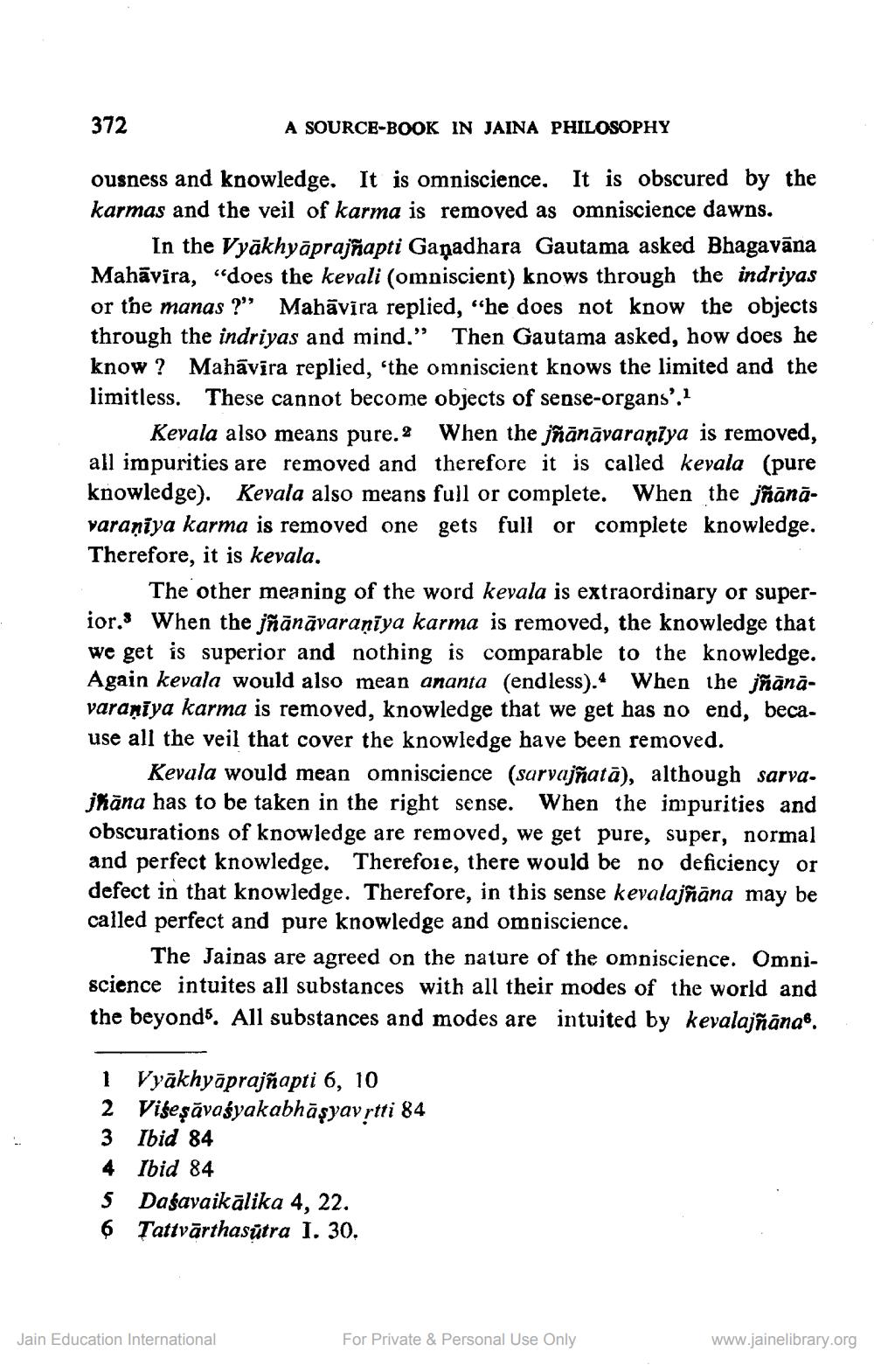________________
372
A SOURCE-BOOK IN JAINA PHILOSOPHY
ousness and knowledge. It is omniscience. It is obscured by the karmas and the veil of karma is removed as omniscience dawns.
In the Vyakhyāprajñapti Gaņadhara Gautama asked Bhagavāna Mahavira, "does the kevali (omniscient) knows through the indriyas or the manas ?" Mahavira replied, "he does not know the objects through the indriyas and mind." Then Gautama asked, how does he know? Mahāvīra replied, 'the omniscient knows the limited and the limitless. These cannot become objects of sense-organs'.1
Kevala also means pure.2 When the jñānāvaraṇīya is removed, all impurities are removed and therefore it is called kevala (pure knowledge). Kevala also means full or complete. When the jñānāvaraṇīya karma is removed one gets full or complete knowledge. Therefore, it is kevala.
The other meaning of the word kevala is extraordinary or superior. When the jñānāvaraṇīya karma is removed, the knowledge that we get is superior and nothing is comparable to the knowledge. Again kevala would also mean ananta (endless). When the jñānāvaraṇīya karma is removed, knowledge that we get has no end, because all the veil that cover the knowledge have been removed.
Kevala would mean omniscience (sarvajñata), although sarvajħana has to be taken in the right sense. When the impurities and obscurations of knowledge are removed, we get pure, super, normal and perfect knowledge. Therefore, there would be no deficiency or defect in that knowledge. Therefore, in this sense kevalajñāna may be called perfect and pure knowledge and omniscience.
The Jainas are agreed on the nature of the omniscience. Omniscience intuites all substances with all their modes of the world and the beyond. All substances and modes are intuited by kevalajñāna®.
1 Vyakhyāprajñapti 6, 10
2 Viseṣāvasyakabhāşyavṛtti 84
3 Ibid 84
4 Ibid 84
5 Daśavaikālika 4, 22.
6 Tattvārthasūtra I. 30.
Jain Education International
For Private & Personal Use Only
www.jainelibrary.org




